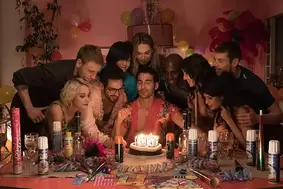 scene from Sense8
scene from Sense8
 scene from Sense8 scene from Sense8 Ecstasy – what does that word mean to you? Ecstasy certainly has many associations! Some of these are deeply sacred, others far more profane. Each however has something in common: they are about standing out: standing out of the ordinary. For in its Greek origins, ecstasy means exactly that. ‘Ek’ means ‘out of’ and ‘stasis’ means ‘standing: hence ‘ek-statis’ – standing out, or away from, the norm. Ecstasy certainly therefore has important philosophical and theological aspects. Take, for example, the queer Cuban American theorist José Esteban Muñoz. I have been thinking about Muñoz because the theme of this year’s Sydney Mardi Gras is ‘Our Future’ and Muñoz gave a great deal of creative thought to imagining more loving futures. For Muñoz suggested that, in contrast to what he called ‘straight time’, at their/our best, queer people live and invite others into what he called ‘ecstatic time’. In other words, instead of living with the ‘normal’ expectations of time and this world, at their/our best, queer people seek to live and reshape this world differently. Instead of our pasts, our presents, and our futures being shaped by our birth families, and by ‘straight’ drives’ for power, children, inheritance, and wealth, at their/our best, queer people seek different kinds of happiness and societal arrangements. For, like other historically marginalised people, queer people have typically been ‘ecstatic’ people. We/they have stood outside of ordinary life and time: which is very much where our two main figures in our biblical story tonight come in – Naomi and Ruth – as striking models of the ‘ecstatic community’ into which God calls us…
0 Comments
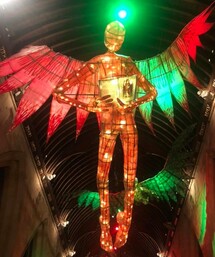 In essence, Christmas is quite a queer thing - don’t you think? I don’t really mean its added oddities, like the 19th century, mainly English, extras, like the carols we sing, and the 20th century, mainly American, extras, like the exaltation of Santa. Those are aspects of Christmas down under which are part of our eclectic multiculturalism, even if they partly reflect our settler colonial culture and tend to work better in the northern hemisphere. For we have more than a little work still to do in listening to the Spirit in these lands now called Australia, including turning many of Christmas traditional symbols upside down and inside out. But that is less of a challenge when we truly celebrate the queerness of Christmas, especially in its original, biblically recorded, forms. For the stories of Christ’s birth - God made flesh - are, like queerness, full of extraordinary features, and very difficult to pin down. Indeed, the very idea that God is made flesh was, and is, a horror to many people. That means that matter matters, and, not least, our bodies matter – and every little bit of them – and caring for one another and our planet matters, because ‘matter matters’ and everything shares in this divine matter. Meanwhile, the idea that God is born in, and with, marginal and outcast bodies still seems so absurd and objectionable to many. For the biblical stories and symbols present God’s queer love: the ultimately irresistible power of Love which overturns all the neat boxes and boundaries of our oppressive world, and its typical ways of thinking. So, rather than trying to straighten out Christmas, as many people try to do every year, I believe that we are far better simply to enjoy its very queer ride: which involves keep adding to the oddities of this time of year, with fresh joy and creativity; and letting its divine queerness shine in us…  Alex may, or may not, remember the first time we met. It was at the start of a new year in which, finally, I was resolved to affirm my gender identity publicly. Dressed as a female, that Sunday I consequently chose MCC at Petersham as the safest space in Sydney to go to Church – Pitt Street Uniting Church would also have been fine but I already knew too many people there and that would have caused premature attention elsewhere. The MCC worship was uplifting and the community immensely welcoming. Over coffee, I then remember a gorgeous young man speaking beautifully and articulately, passionately and gently, about faith, life, and the possibilities of joy and community for us all, whoever we are. He opened us up to the experiences he was having in his studies in the USA, and some of the wonderful new life of progressive churches there. That young man was Alex, and, little did we know it, but our lives were to intersect frequently in the following years. Not least, after I came out publicly, MCC Brisbane was my second spiritual home, alongside the terrific Milton Anglican community. As Pastor there, Alex helped accompany me through that stage of life, enriching Penny and I, as well as so many others, with his gifts and love. Hopefully, we too offered some mutual support. Indeed, just as Penny and I were honoured to share in Alex’s ordination at MCC, and to walk with him through that time, so the last thing we experienced in Brisbane was a blessing from MCC for our journey into new ministry at Pitt Street Uniting Church, conducted by Alex. It has therefore been such a joy to be reunited with Alex here in Sydney, sharing not only times of struggle – such as the queerphobic attacks upon Pitt Street and the wider LGBTIQA+ community earlier this year, but new steps, such as that for which we gather today. All this too, is part of the shared inspiration which Penny and I, like Alex, draw from the extraordinary text of the book of Ruth which we have just heard… 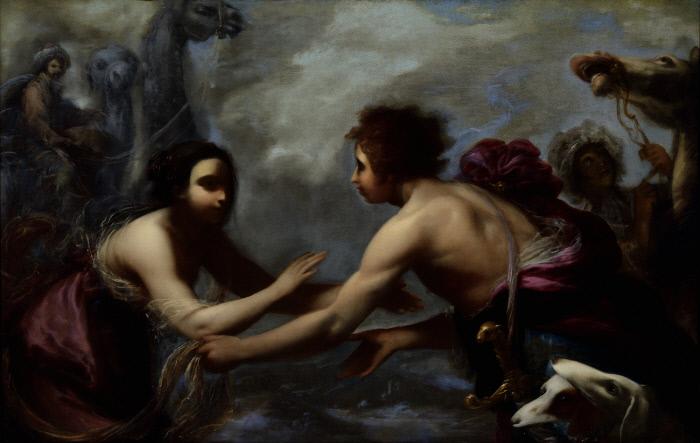 image: The Meeting of Rebekah and Isaac, Nasher Museum of Art, Duke University image: The Meeting of Rebekah and Isaac, Nasher Museum of Art, Duke University The Bible is known to many as ‘The Good Book’, but is it actually a good book, morally speaking? In the USA this has become a political, as well as a theological, question. A Utah school district recently banned the Bible from its elementary and middle schools for what it named as ‘vulgarity and violence’.[1] This followed a parent’s complaint that the Bible has material unsuitable for children, after Utah’s Republican government had passed a law in 2022 banning ‘pornographic or indecent’ books from schools. This is not an isolated case. For recent conservative bans on books have been particularly aimed at education around LGBTIQA+ issues. Yet this can easily rebound, as it draws attention to the Bible’s moral ambiguities. Religious conservatives often assume the Scriptures to be unadulterated good news for all. Meanwhile some secularists tend to assume bad news. However, read as a whole, the Bible’s reality is that it rarely offers simple black and white morality. Rather it invites us to wrestle with its challenges, and inspirations. From this we can indeed grow in the faith, and power, of God to which the Scriptures witness. We do so however by deepening our sense of God working with and through our very human realities, not escaping from them. This is certainly true of Rebekah and Isaac, who are centre-stage in our Genesis story (in chapter 24) today…  photo: John Canada on Unsplash photo: John Canada on Unsplash .A number of years ago, Penny and I were exploring the possibility of employment with a wonderful pioneering female bishop. In the course of her hospitality she introduced us to a fellow, nearby, bishop in case he also had a parish to offer us to work in. He however took one brief look at us, and, at once, abruptly asked ‘do you believe in the Resurrection?’ It was said in a very demanding, and almost accusatory, tone. Taken aback though we were, we actually responded very well, saying together, and in a somewhat incredulous tone, ‘why yes, of course!’ The bishop was nonetheless not at all impressed and exited immediately. For, of course, his question was not one to which he really expected an answer, or at least one in which he was actually interested. Like the notorious enquiry ‘when did you stop hitting your wife?’, it was a deliberately loaded question, containing its own assumptions. Like the Sadducees’ question to Jesus in today’s Gospel reading, it was also not really about resurrection at all. How often, I wonder, are our own questions like that too? When we talk in faith spaces, how much do our own interests intrude? How do we keep open to the mystery of resurrection?... 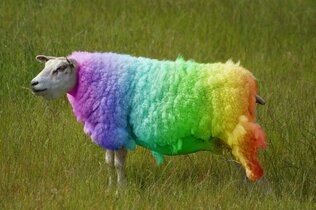 Taking up today’s Gospel (Luke 15.1-10), I want to speak about three things: queer sheep, the value of women’s coins, and rainbow repentance; about how queer sheep need revaluing; about how women’s coins challenge Church and world to rainbow repentance; and about how rainbow repentance involves renewing pride in queer sheep. Firstly though, let me speak of a cartoon highlighting these themes. For, like a good picture, an insightful cartoon can paint a thousand words… 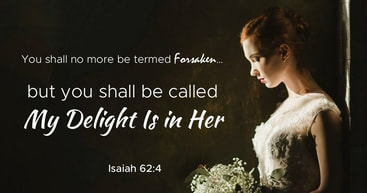 Amidst the storm and heat, is there anything else to say about marriage from a Christian point of view? Well, yes, as larger dimensions are often ignored in marriage debates, not least among we Christians who claim to ‘know’ what the scriptures ‘teach’. So much has been couched in terms of modern individualistic bourgeois values that one wonders how many people have actually read, and pondered, either the history of marriage, or the scriptures that make some people, on different sides of the arguments, so jumpy. Actually, the official Australian Marriage Equality body did not really help during that awful postal survey. Whilst its aims were (for me at least) manifestly just, the mainstream campaign was not only reluctant to engage with controversy directed against gender diverse persons, but it was frustratingly often built on limited ideas of marriage as the choice merely of two individual persons, reflecting conventional contemporary norms of ‘couple-dom’. Now, admittedly, this was in the context of civil marriage alone. Yet, in this, in its assumptions about marriage, it was not so different from narrow ideas certain Christians seem to have. Instead, when we look at the Bible and Christian Tradition as a whole, we find something much, much, bigger. Today’s reading from Isaiah chapter 62 is a powerful expression of this. For, in Isaiah, as elsewhere in the Bible, marriage is not so much about an individual’s bourgeois expression of identity and legal and moral relationship to another individual. Nor is it ultimately really much about sex or gender, though those human aspects are caught up in biblical conceptions in a series of different ways. Rather, marriage is a profound symbol of divine relationship, involving the transformation of everything. For, as Isaiah 62 verses 1-5 makes startlingly clear, biblical marriage is about the marrying of all things, bringing healing and the restoration of justice and peace. Indeed, marriage as a vehicle of transformation is not only about whole communities rather than individual persons alone, but it is also not simply about human beings alone. It is also about the marrying of land, and creation as a whole: the fullness of the ‘new creation’ prophesied in Isaiah and fulfilled in Christ. Our little human relationships, if hugely precious, are ultimately just elements in this. For it it is thus so much more radical than any conventional conception of marriage… an address in favour of blessings after civil ceremonies for other than traditional male and female couples
at the Synod of the Diocese of Brisbane, October 2018... 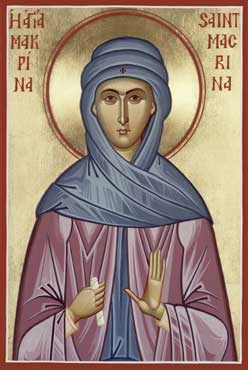 If we ever need to show how important relationships are in nurturing love and faith, Gregory of Nyssa, Macrina the Younger, and their family must be high on the list of examples. For on 19 July we particularly remember Gregory and Macrina, but other members of their family are also notable official saints in the Christian calendar: not least their brother Basil the Great, their mother Emiliana, and grandmother Macrina the Elder. This is a powerful reminder of how the relational webs of our lives are so crucial to us. Not least those women's names are also highly significant, as they point us to the usually deeply buried history of so many women in Christian Tradition, and to the vital contributions they made to the growth of the Church. Sadly, of course, even these we almost always receive through the records of men, who have filtered, through their own perspectives, the full female story. So, on 19 July for example, in the Anglican lectionary, we are able to honour Macrina the Younger. Yet this is only alongside one of her brothers, Gregory, and essentially it is by his references to her, and not through her own work directly, that we know something of her at all. This a great shame. For Gregory wrote both a hagiography, entitled the Life of Macrina, and a profound reflection, entitled a Dialogue on the Soul and Resurrection, which he dedicated to Macrina, purportedly describing the deep conversation he had with her on her deathbed. These are wonderful, for they show to us a quite remarkable woman who was clearly a central spiritual influence and model for her family and the wider Church. Spiritually and intellectually, she shaped, in her brothers Gregory and Basil, two of the greatest Christian thinkers of all time. In addition, within the limits of her times, she created new space for women. Yet, we might then wonder, despite Gregory's fine tributes, how much more is there which we may never know about her and about other women of her day. What we do have remains an inspiration to us today. For Macrina shows us what it is to be an outstanding sister in the Faith... 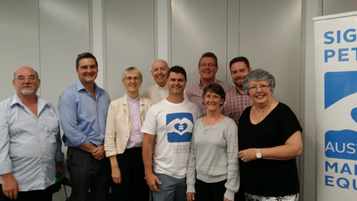 address by The Revd Dr Jon Inkpin and the Revd Penny Jones to Toowoomba Marriage Equality meeting, 17 April 2016 It is sometimes said that ‘you are either part of the problem or part of the solution’. In our case we are very much connected to part of that which indeed is often the problem, but we also hope we can be part of the solution. For we have been married to each other for 30 years, presided at marriage ceremonies for about 60 years between us, and shared both amazing joys, and, sadly, many tears with many LGBTI friends and family members for so much unnecessary pain, abuse, and rejection. So, above all, want to affirm three things which we feel are at the heart of this issue, and at the heart of Christian faith - namely: love, valuing everyone as part of God’s image, and being and growing family. We feel we need to say something briefly about two things which some misuse to hold us back: Christian tradition and the Bible. And we want to suggest three key areas of resistance. In doing so, we hope and pray for a speedy end to so much unnecessary suffering and look forward to many more tears of joy as marriage is extended and grown. We would like to begin by acknowledging the traditional custodians of the land on which we meet, the Jarowair and Giabal peoples, their elders past and present. And we do so, because this helps us nurture respect, deepen relationship, and find renewal for us all – which, of course, is what marriage equality is also about at its best. For from a Christian point of view, marriage is about sharing in the ultimate mystery of love. We only have to go to the opening words of scripture from our Anglican marriage service to see that: ‘God is love’, we say, ‘and those who live in love live in God, and God lives in them’ (1 John 4.16). For Christians, that is the heart of the matter: where is love in all of this? In the end, what would Jesus do?... |
Authors
sermons and reflections from Penny Jones & Josephine Inkpin, a same gender married Anglican clergy couple serving with the Uniting Church in Sydney Archives
June 2024
Categories
All
|
 RSS Feed
RSS Feed